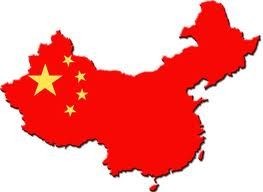BISHKEK (TCA) — A representative of China has addressed the European Bank for Reconstruction and Development (EBRD) Board of Directors as a shareholder for the first time, less than two weeks after the country formally became the EBRD’s 67th member, the EBRD press office reported on January 28.
Jun Zhu, Director-General of the International Department of People’s Bank of China (PBoC), said in her address to the Board that cooperation between the EBRD and China has great potential and could bring benefits to both parties and to EBRD countries of operations.
The EBRD is increasing its investments in Central Asia, and the Bank and China are already talking about potential cooperation, especially in rebuilding the Silk Road and improving the region’s infrastructure. Both China and the Bank are already very active in this area. The EBRD website asked Jun Zhu to comment on the advantage for the EBRD and China of joining forces, rather than continuing to invest separately.
“There are huge benefits of cooperation,” Jun Zhu said. “We have the One Belt, One Road initiative. It covers the old Silk Road area, and this geography has huge overlap with the EBRD’s region. It covers Central Asia, eastern and central Europe, some parts of the Middle East and North Africa. And yes, we could both continue investing on our own – in China we have very close cooperation with Central Asian countries, especially in recent years – but we think it would be a win-win situation if we can mobilise multilateral development banks (MDBs), including the EBRD and AIIB, together with us, to help other countries improve their infrastructure investments. It has not only to do with investment size, but also with investment expertise, evaluation and assessment of projects, and also human resources accumulation. For all of these kinds of accumulation China needs the expertise from MDBs. I think the EBRD has taken the lead in this area, they have a very good pool of projects and understanding of individual countries, and a very good relationship with the private sector which we lack. The EBRD has a lot of professional investment bankers and experience with private companies which we in China don’t have on our own. And for the EBRD, China could also be helpful in this area. Not only in the One Belt, One Road initiative, but also because of our bilateral links to many countries.”









